Last-Minute NYC Holiday Gift Guide 🎁
We’ve created a holiday gift guide with presents for the intrepid New Yorker that should arrive just in time—


John Purroy Mitchel was “The Boy Mayor.” Elected in 1914 at the age of thirty-four, Mitchel holds the distinction of erroneously being called the youngest elected mayor of New York City. Despite his young age, Mitchel, the second youngest elected New York City mayor, rose to fame and won election as a reformer.
Mitchel attended Columbia College followed by New York Law School. Within a few years of graduating law school Mitchel was appointed the City Commissioner of Accounts. As the Commissioner, Mitchel discovered a protection racket involving the New York City Police Department. The investigation surrounding this racket brought down the the Bronx and Manhattan Borough Presidents. In 1909, Mitchel was elected President of the Board of Alderman during which time he drafted New York City’s first comprehensive budget. This budget was revolutionary because it included a full accounting of all of the City’s resources. In a crushing blow to the dominance of the corrupt Tammany Hall, Mitchel won the mayoral election in 1913, by a large plurality on a fusion ticket. Sadly, Mitchel was no match for the Democratic Machine, and by 1917, another Tammany puppet was back in City Hall.
After his defeat, Mitchel joined the Army Air Service. On July 6, 1918, thirteen days shy of his thirty-ninth birthday, Mitchel died in a training accident in Lake Charles, Louisiana. He died falling out of his airplane. It is thought that he had forgotten to fasten his seat belt and fell out while turning the plane upside down in a stunt. The following day The New York Times reported that “[o]ne of the mechanics had said…’It makes my hair stand on end to see Major Mitchel fly. He takes risks and seems to think nothing of it.'” Mitchel’s body was returned to New York, and he was buried in Woodlawn Cemetery.
Soldiers loading flag-draped casket of former New York City mayor John Purroy Mitchel onto wagon, with Theodore Roosevelt and other officials holding their hats in respect:
Mitchel left a lasting legacy for his scrupulous honesty and as an uncompromising idealist. As a result, New Yorkers responded to Mitchel’s death by creating a number of memorials in his honor. A Long Island Air Force Base was named in Mitchel’s honor as was a small Upper Manhattan park. The three most prominent memorials to Mitchel in New York City can be found at Columbia University, Central Park, and the main branch of the New York Public Library.
In 1919, the Columbia College class of 1899 presented a memorial in honor of their fellow classmate to the University. The memorial consists of a bronze tablet which was sculpted by Jo Davidson, a personal friend of Mitchel whose work can also be seen at the Four Freedoms Park. The tablet depicts a sitting Mitchel, in his Army uniform, looking towards biographical information. This memorial can be found on the west side of Hamilton Hall, which is located off of 116th Street and Amsterdam Avenue.
The memorial today:
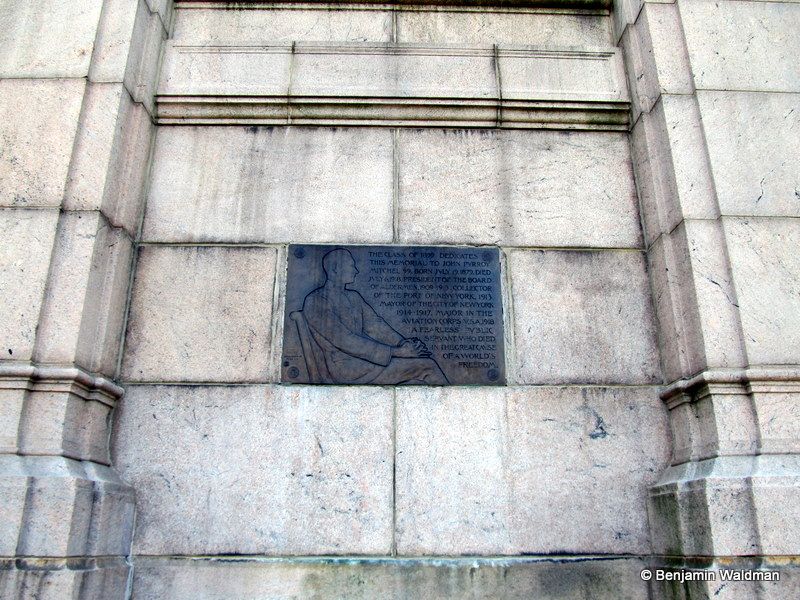
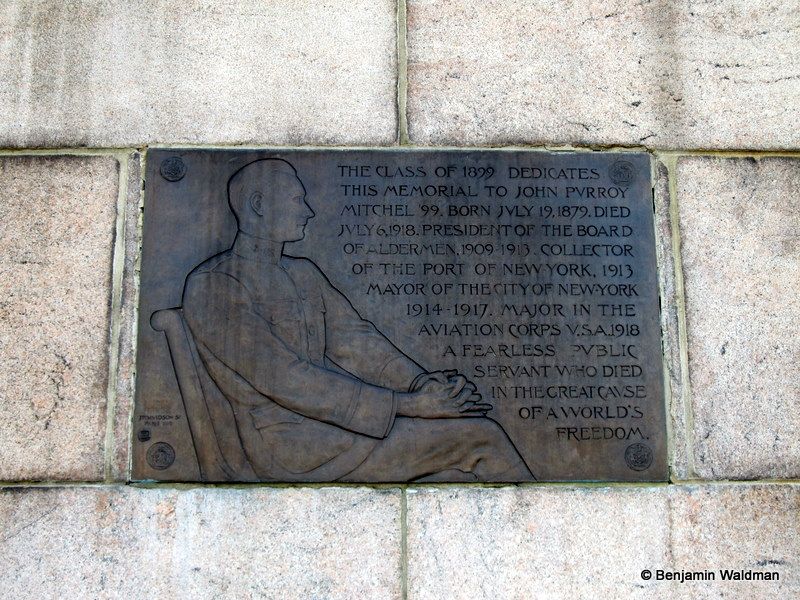
Just through the Engineers’ Gate to Central Park, on the eastern embankment of Central Park’s Reservoir at 90th Street lies another memorial to John Purroy Mitchel. Dedicated in 1928, the memorial consists of a stele, bust, and ornamental wall. The stele was designed by architects Thomas Hastings and Don Barber and the bust was sculpted by Adolph Alexander Weinman.
The Central Park Mitchel Memorial:
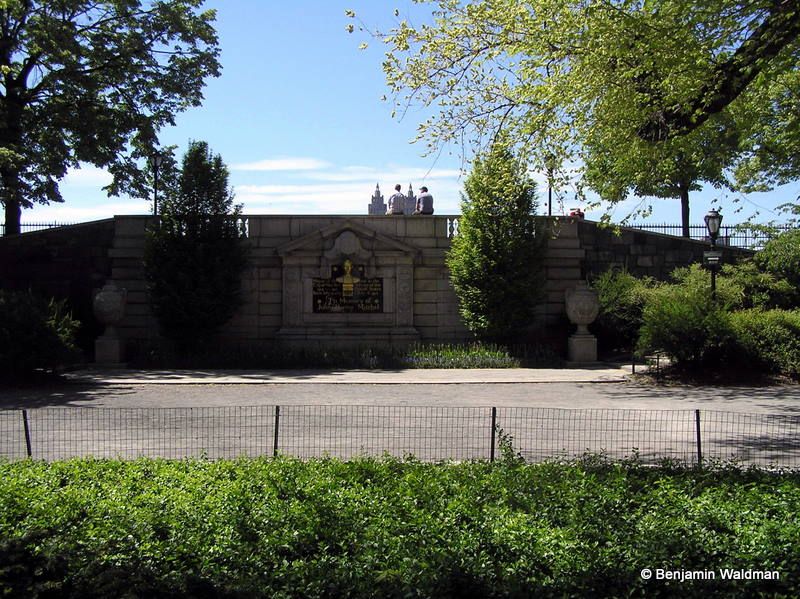
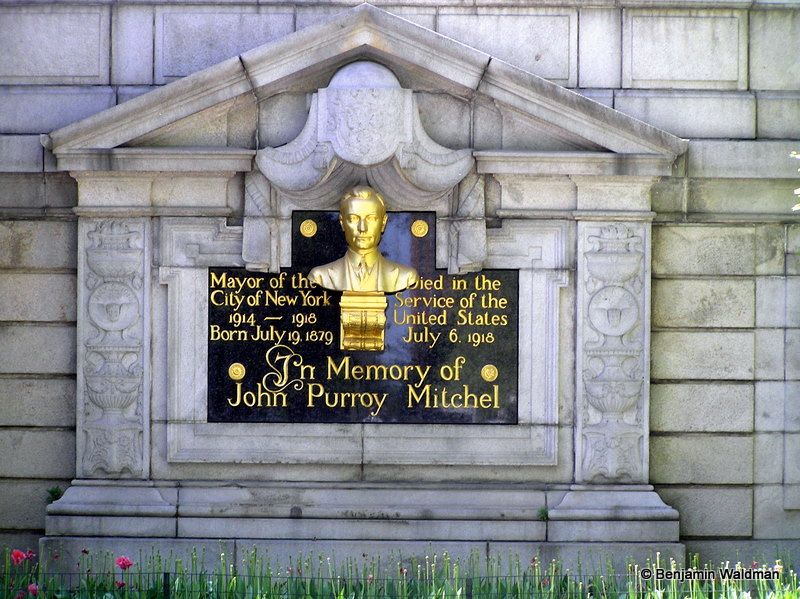
The John Purroy Mitchel Memorial Flagstaffs are located on the plaza in front of the main branch of the New York Public Library. The intricately designed allegorical bases were designed by Carrere and Hastings as part of their original design for the library but were rededicated as a memorial to Mitchel in 1941. The northern flagpole memorialized Mitchel’s mayoral service with a plaque and the New York City flag and the southern flagpole was dedicated in honor of his military service accompanied by the United States flag.
The Bryant Park Mitchel Memorial:
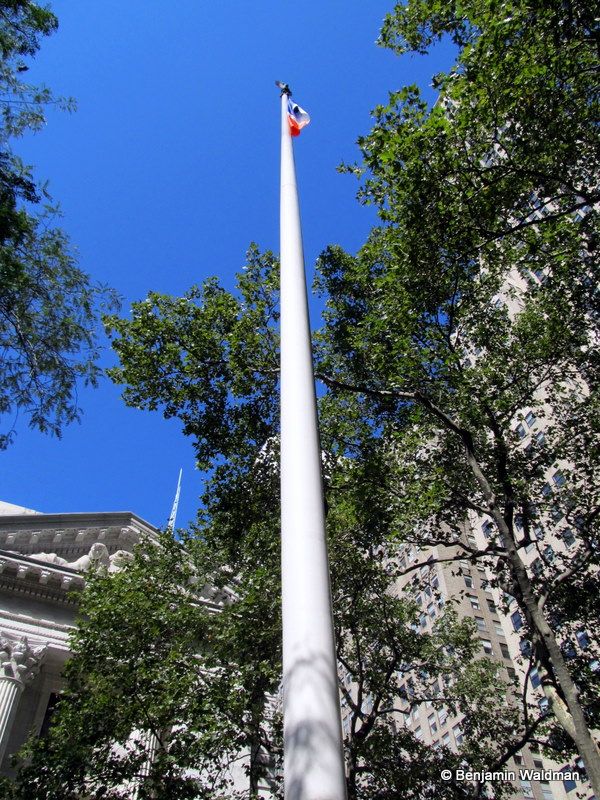
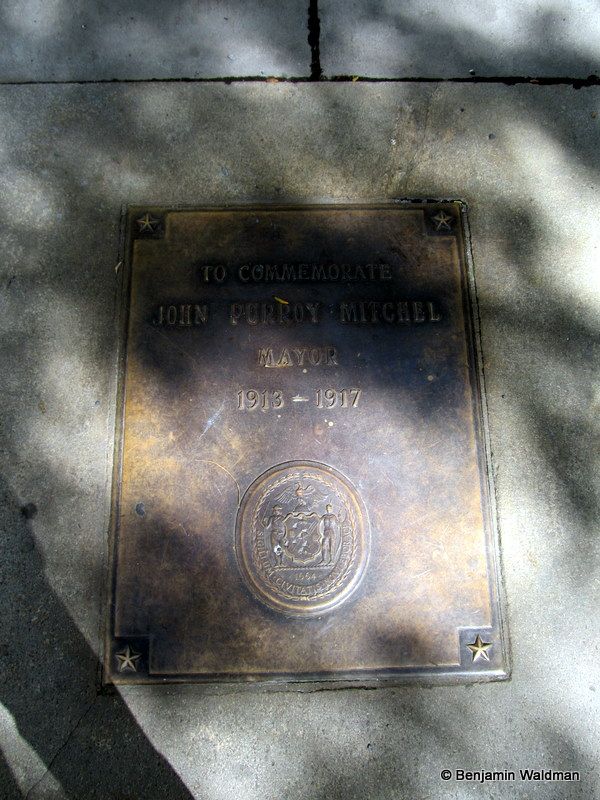

Subscribe to our newsletter